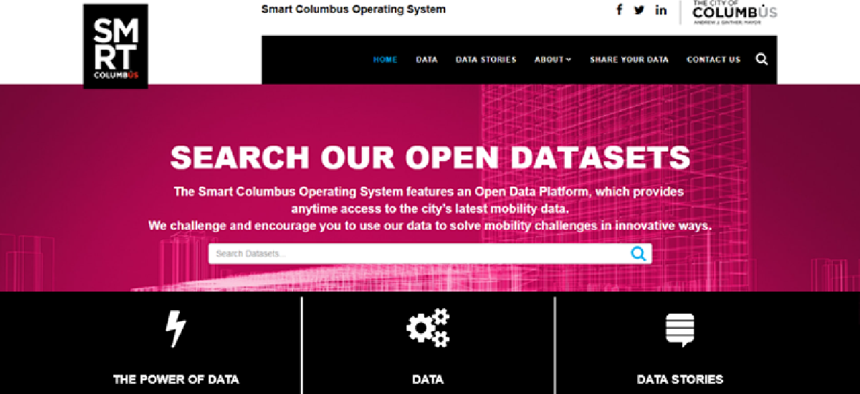Columbus unveils 'initial' smart city operating system

The Smart Columbus Operating System features an open data platform that brings together more than 1,000 mobility-related datasets.
When Columbus, Ohio, won the Department of Transportation's Smart City Challenge in 2016, an underlying operating system was a large part of its proposal. On May 17 the city unveiled the “initial iteration" of the Smart Columbus Operating System.
The operating system's open data platform brings together over 1,000 mobility-related datasets. Much of the data contains geographic information like the location of bridges, county boundaries and zoning districts. But there is also data on topics as diverse as food deserts and infant birth weight.
Users can navigate the open-source data by searching by keyword or filtering by tag, file format or organization. Data can be viewed online or downloaded in a number of formats. Metadata has been curated in compliance with Project Open Data standards to ensure machine readability and utility and preserve privacy and security, according to the project website.
To keep the project growing, dataset contributions are encouraged. Suggested contributions will be reviewed by a data curator, who will assess the potential applications of the data, its usability and readiness for publication.
The website is built on open source code, which means other cities can leverage the code for their own data management platforms. The Smart Columbus Operating System is being developed using agile methodology, with updates planned every two weeks.
The next step is figuring out what exactly to do with all this data.
“Our next challenge will be to build the ecosystem for developing solutions that we can progress from idea, to testing and ultimately production,” said Ben Blanquera, the vice president of delivery and experience for the Columbus Collaboratory and co-leader of the team that developed the operating system.
In conjunction with the platform's launch, the city is hosting a three-day hackathon where teams of developers will compete to create applications that leverage the data to solve transportation-related problems like parking management, access to food supply for food-insecure families and bridge-height intelligence.
NEXT STORY: How agencies craft mobile-friendly messaging





